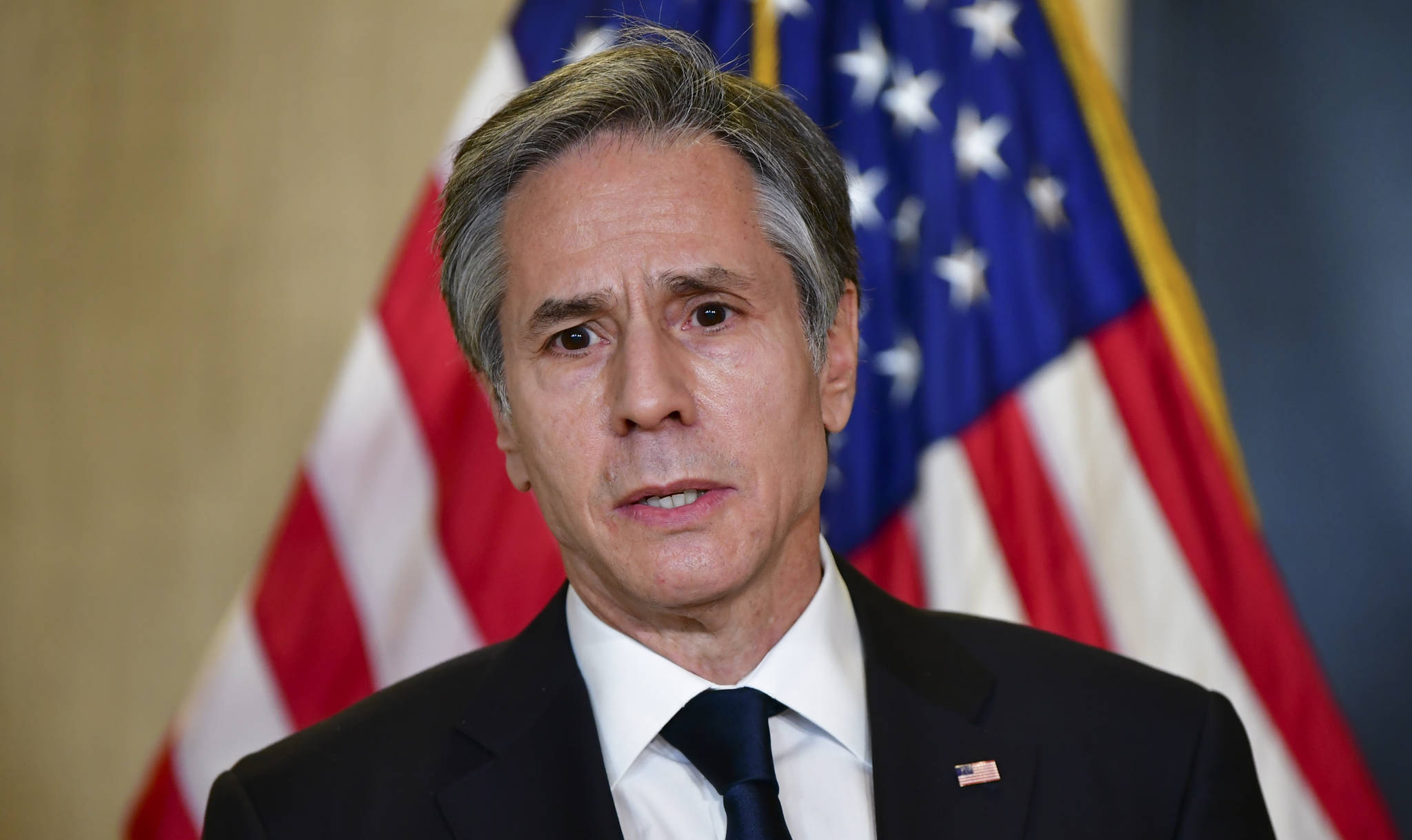By Matthew Lee and Mark Thiessen
Associated Pressz
ANCHORAGE — Top U.S. and Chinese officials wrapped up two days of contentious talks in Alaska on Friday after trading sharp and unusually public barbs over vastly different views of each other and the world in their first face-to-face meeting since President Joe Biden took office.
The two sides finished the meetings after an opening session in which they attacked each other in an unusually public way. The U.S. accused the Chinese delegation of “grandstanding” and Beijing fired back, saying there was a “strong smell of gunpowder and drama” that was entirely the fault of the Americans.
The meetings in Anchorage were a new test in increasingly troubled relations between the two countries, which are at odds over a range of issues from trade to human rights in Tibet, Hong Kong and China’s western Xinjiang region, as well as over Taiwan, China’s assertiveness in the South China Sea and the coronavirus pandemic.
“We got a defensive response,” Secretary of State Antony Blinken said after the meetings concluded.
“We wanted to share with them the significant concerns that we have about a number of the actions that China has taken, and behaviors exhibiting concerns, shared by our allies and partners,” he said. “And we did that. We also wanted to lay out very clearly, our own policies, priorities and worldview. And we did that too.”
In separate comments, Chinese Communist Party foreign affairs chief Yang Jiechi said dialogue was the only way to resolve differences, But he also made clear that Beijing had no intention of backing down on any issue.
“China is going to safeguard our national sovereignty, security and our interests to develop China,” he said. “It is an irreversible trend,” he said.
“We hope the United States is not going to underestimate China’s determination to defend its territory, safeguard its people and defend its righteous interests,” he said.
As they opened the talks on Thursday, Blinken said the Biden administration is united with its allies in pushing back against Chinese authoritarianism. In response, Yang accused Washington of hypocrisy on human rights and other issues, many of which Blinken mentioned in his comments.
“Each of these actions threaten the rules-based order that maintains global stability,” Blinken said of China’s actions. “That’s why they’re not merely internal matters, and why we feel an obligation to raise these issues here today.”
National security adviser Jake Sullivan amplified the criticism, saying China has undertaken an “assault on basic values.”
“We do not seek conflict but we welcome stiff competition,” he said.
Yang responded angrily by demanding the U.S. stop pushing its own version of democracy at a time when the United States itself has been roiled by domestic discontent. He also accused the U.S. of failing to deal with its own human rights problems and took issue with what he said was “condescension” from Blinken, Sullivan and other U.S. officials.
“We believe that it is important for the United States to change its own image and to stop advancing its own democracy in the rest of the world,” Yang said. “Many people within the United States actually have little confidence in the democracy of the United States.”
“China will not accept unwarranted accusations from the U.S. side,” he said, adding that recent developments had plunged relations “into a period of unprecedented difficulty” that “has damaged the interests of our two peoples.”
“There is no way to strangle China,” he said.
Blinken appeared to be annoyed by the tenor and length of the comments, which went on for more than 15 minutes. He said his impressions from speaking with world leaders and on his just-concluded trip to Japan and South Korea were entirely different from the Chinese position.
“I’m hearing deep satisfaction that the United States is back, that we’re reengaged,” Blinken retorted. “I’m also hearing deep concern about some of the actions your government is taking.”
Underscoring the animosity, the State Department blasted the Chinese delegation for violating an agreed upon two-minute time limit for opening statements and suggested it “seem(ed) to have arrived intent on grandstanding, focused on public theatrics and dramatics over substance.”
“America’s approach will be undergirded by confidence in our dealing with Beijing — which we are doing from a position of strength — even as we have the humility to know that we are a country eternally striving to become a more perfect union,” it said.
Chinese Foreign Ministry spokesman Zhao Lijian, speaking later in Beijing, said Blinken and Sullivan had provoked Chinese officials into making a “solemn response” after U.S. officials made “groundless attacks” against China.
“It was the U.S. side that … provoked the dispute in the first place, so the two sides had a strong smell of gunpowder and drama from the beginning in the opening remarks. It was not the original intention of the Chinese side,” Zhao told reporters at a daily briefing.
U.S.-China ties have been torn for years, and the Biden administration has yet to signal whether it’s ready or willing to back away from the hard-line stances taken under Donald Trump.
Just a day before the meeting, Blinken had announced new sanctions over Beijing’s crackdown on pro-democracy advocates in Hong Kong. In response, China stepped up its rhetoric opposing U.S. interference in domestic affairs and complained directly about it.
“Is this a decision made by the United States to try to gain some advantage in dealing with China?” State Councilor Wang Yi asked. “Certainly this is miscalculated and only reflects the vulnerability and weakness inside the United States and it will not shake China’s position or resolve on those issues.”
Trump had taken pride in forging what he saw as a strong relationship with Chinese leader Xi Jinping. But the relationship disintegrated after the coronavirus pandemic spread from the Wuhan province across the globe and unleashed a public health and economic disaster.

